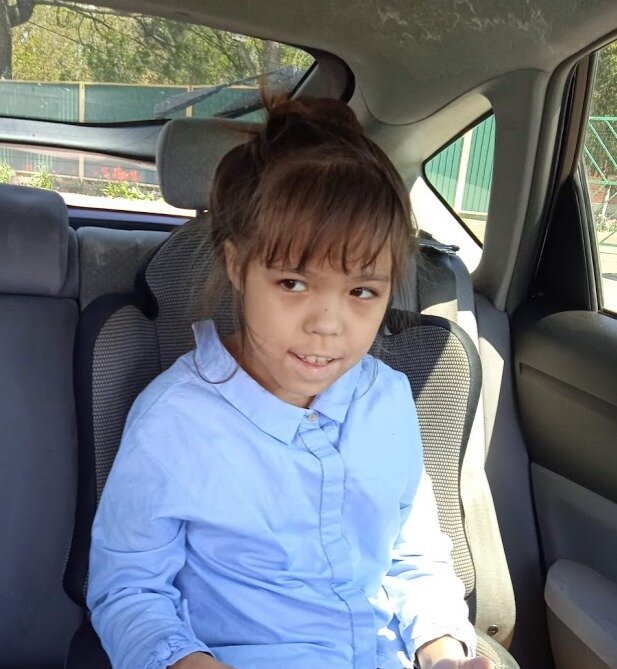Where do teenagers with autism disappear to?

Good day to all! The older Alice gets, the more I think about what she will do after graduation.
An interesting question is, where do children with developmental disabilities disappear as they grow up? We constantly visit some centers for the development of children with special needs. There are a lot of small children in such centers, most, according to my observations, are from 3 to 7 years old. There are fewer younger students, but they are there. There are almost no teenagers, we rarely see children from 14 years and older. Why is this happening? Most likely, some children successfully overcome difficulties and become normal, especially with regard to OCD (delayed speech development), ADHD (attention deficit hyperactivity disorder). ZPRR (delayed speech development), if in the future this diagnosis does not change to something more serious.
But not everyone goes back to normal. Maybe by this age parents are already so immersed in the problem that they can work with a child better than any specialist? Today my friend called me and asked me to talk to her friend, whose one-and-a-half-year-old daughter does not respond to the name. I was very surprised at first, because I’m not a neurologist, what can I say, but in the course of the conversation, I suddenly realized that I know a lot about the symptoms of autism and even more about how to work with them. Honestly, of course, I just tried to tell you about the signs in the child’s behavior that should make parents worry and consult and gave the contact of competent specialists who can diagnose. I have no right to make a diagnosis and even more so to advise some kind of treatment. But this situation made me remember and realize also the moment that we almost stopped going to neurologists with Alice. If at the beginning of our journey I expected from each doctor some clear diagnosis and a specific scheme of actions to overcome it, now this is not. We have already tried almost everything that was recommended to us, diagnoses are already standing, work is underway, we have stopped waiting for a wonderful magic pill. Maybe the rest is also happening?
However, I still don’t feel able to refuse the help of specialists. I understand that my knowledge and skills are not enough to work with Alice exclusively on my own, but I’m not an indicator that things are the same for everyone.
Maybe schoolchildren are also not so visible because most of them attend specialized schools where they work with a psychologist, a speech therapist, and a speech pathologist.
Perhaps everyday life is becoming so established that some new activities no longer fit into it (especially if we take into account the fact that autistic people are cautious and sometimes negative about changes).
What scares me the most is the possibility that parents lose the ability to cope with their child and stop bringing him out. Personally, I know a girl who has entered adolescence and her mother recently wrote that they stopped going out with her because they can’t cope. Moreover, the girl constantly works with specialists, is on a bgbk diet, receives a complex of vitamins and dietary supplements, passes a tank, etc., that is, she is always in the focus of attention, she is engaged. And, reading the comments to the post of this girl’s mother, I saw that this problem is not an isolated one. Parents lose leadership control, they cannot persuade the child to stop crying or screaming on the street, in a store or any other crowded place. In no case am I saying that these are bad parents, the fact itself scares me.
Today I measured Alice’s height, she stretched out by 5 cm, now her height is 128 cm, mine is 160 cm and I understand that if she throws a tantrum on the street now, I’m unlikely to forcibly carry her somewhere. And I really don’t want her to stay at home.
Again, for older children there are already much fewer circles where they can spend time. I really got into the soul of the moment when I was waiting for Alice from school (I bring her in the morning, and then I wait at the school, since it’s 20 km from our house to school) I saw a boy who came to the school fence and just stood and looked at the territory of the educational institution. Then I found out that this boy graduated from this school last year and now, of course, cannot attend it, but apparently he has no other classes. So he comes to the place where he was accepted, where he was interested, and this makes me feel creepy.
It is good that now there are more and more places where children with special needs can not only gain knowledge, but also spend time in society and with benefit. Thank you very much to those people who organize such groups in their centers, it’s a huge job, but it’s so necessary. I want to believe that gradually there will be more and more activities for older children. Or maybe I’m just not in the topic yet and don’t know what happens to children with similar diagnoses in adolescence? Please share your experience, I would be very grateful!
P.S. If you found my article interesting and you are not subscribed to my channel, then I will be very grateful to you for subscribing.
Comments: